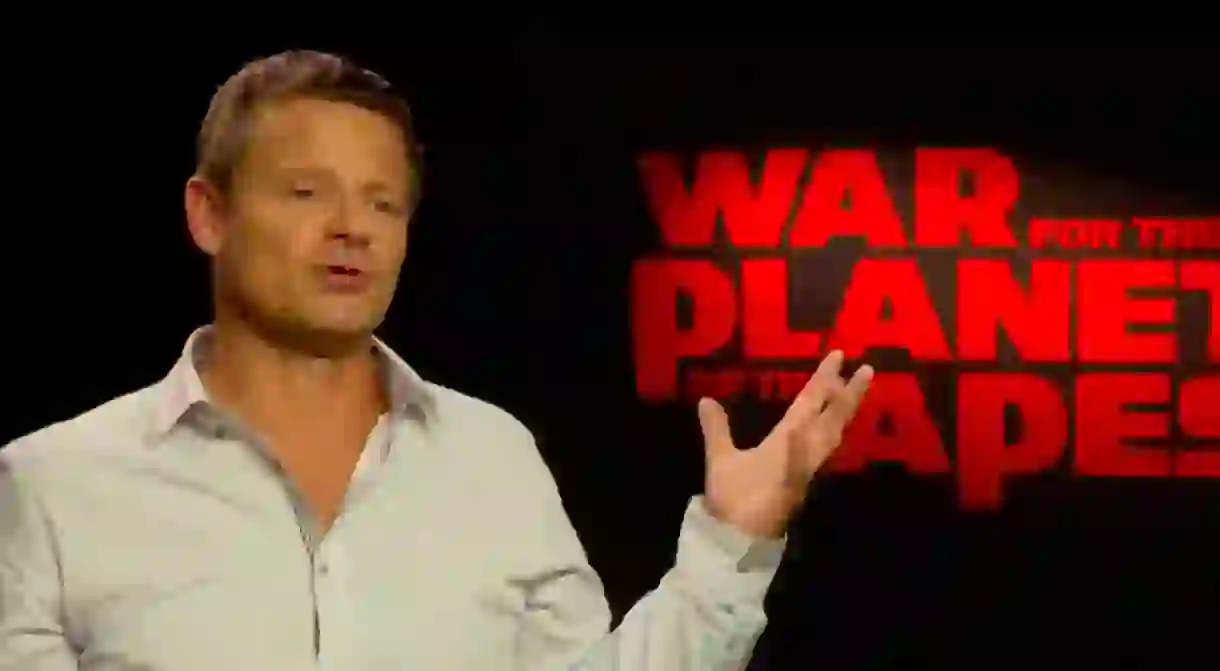Steve Zahn on Playing a Bad Ape

The newest member of the ever-expanding Planet of the Apes family, Steve Zahn, joins the successful franchise as Bad Ape, a character with a troubled past and unique connection to hero Caesar. Culture Trip spoke to the Hollywood star about the film and the effects involved in bringing talking monkeys to the big screen.
Culture Trip (CT): In War for the Planet of the Apes, you play a fresh addition to the series. What was it like playing the character?
Steve Zahn (SZ): It was great. I mean it was such a well-written character right off the bat. I was very excited to play this guy and yeah, it’s exciting to be a part of something so huge and be kind of this intricate part of not only the story but this fresh kind of different speed. The guy has been on a different journey with Caesar and his pals. Pretty heavy trip.
CT: And we get a sense of that with the snatches of his backstory that we hear. How far into that did you delve and develop?
SZ: Not that much, I mean what was important to me about his backstory is that he comes from the Portlands Zoo, and escaped and learned how to talk right. Most of his things come from humans, so he has a different way of thinking. I think that makes him a little different.
His speed is different. He’s maybe a little more human in certain ways, but he goes off in the mountains, he’s living with other chimps. They die and he’s by himself for a couple of years and he’s living in his ski lodge. And then they [Caesar and his group] come along, they find him and they are amazed that there’s other chimps out there; other apes that have survived that aren’t just in their clan. He’s amazed that there’s anyone at all, you know? So what was important to me was that history of solitude that drives him. You know he goes to places that are completely against his instincts, and yet he does it just for companionship.
CT: This comes out when you think he’s afraid. Not necessarily a coward, but he’s got justification for not being as brave as some of the others…
SZ: No, you’re right. I mean he really is the audience in a way. You know wherever they go he’s always kind of appearing between people, thinking ‘Where?! What, are you nuts?!’ You know he’s that guy, which is what I often play. I like playing those guys that are that are kind of the audience. He’s commenting like ‘Whoa whoa whoa. you’re nuts.’
CT: Would that be your natural reaction to that sort of situation, or are you more like Caesar?
SZ: No way! I’m like, you go. I’ll be… I’ll be right behind you. He also develops throughout the course of the story because of the relationships he develops with the other apes. And, of course, the relationship with Nova [a young girl rescued by Caesar].
You know, we became very close just because our characters are close. I think right off the bat my first reaction to her is that she’s cold. I know that and Caesar has a different bond too.
Actually Caesar and my character have probably got the closest bond because of their experience. And they’re in there. They share the experience of loss. That’s very similar. And that’s why he actually goes with them. And it’s a great moment for Bad Ape.

CT: By the end, where is Bad Ape? I mean we know he’s in a bad place, but is he taking more of a leadership role by that point?
SZ: I don’t now. I really think it could be. Yes. Maybe like the mouthpiece. Actually, no, he’s kind of more like the preschool teacher, he’s in charge of the kids. He’s like the events planner.
CT: He does he does step up though. I mean he does step up very well.
SZ: Oh yeah. Yeah definitely. There are glimpses of him being more a part of a community I think, which is how I like to think of it. He’s kind of an individual at the start, and then he starts becoming part of this group, you know, naturally, which is really cool.
CT: We just spoke to [director] Matt Reeves and we were talking about the special effects, which are still the best in Hollywood – or in movies – in general, because you watch it and you can’t tell that they are special effects. You see the chimps and you see the horses and you just say ‘well how did they get a monkey to ride a horse?’ and realise they didn’t do any of that…
SZ: I assumed everything would be like that too, but I was surprised when I went to work that it was really like shooting any other movie.
The avalanche at the end was probably the only thing I didn’t really recognise when I watched the film. That was the only time I was like ‘okay, we did that in the studio’, where we climbed these fake trees but we still hung onto them and you know, and that’s what blew me away.
War for the Planet of the Apes is on general release from July 11













